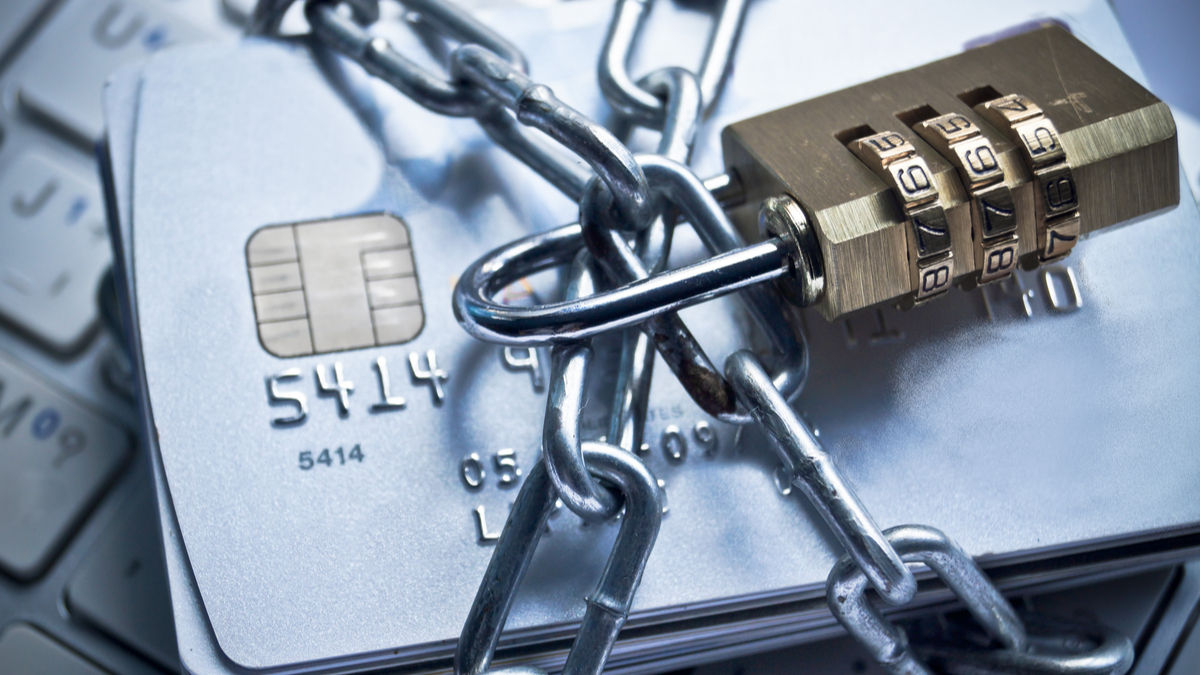How to Lock Your Credit
How to Lock Your Credit

KEY TAKEAWAYS
- A credit lock can be a simpler way to control access to your credit report than a credit freeze.
- Unlike a credit freeze, you can initiate a credit lock from your mobile device.
- All three of the major credit bureaus—Equifax, Experian, and TransUnion—allow you to lock your credit files, although it isn’t always free.
- If you’ve already been a victim of identity theft, you may want to consider a fraud alert or credit freeze instead.
What Is a Credit Lock?
Your credit reports contain key information about your financial accounts, as well as other personal details. A credit lock is a way to restrict who has access to that information.
Credit locking, offered by all three of the major credit bureaus, lets you control who can view your credit reports from your laptop or mobile device. If you lock your credit report and someone tries to check your credit history, access is denied. You can lock your credit reports with just one credit bureau or with all three.
Depending on which credit bureau locking service you use, you may have to pay a fee. Experian1 and TransUnion2, for example, both charge a monthly fee to lock or unlock credit. Equifax offers this service for free3.
Note
This type of credit lock is different from the lock feature that some credit cards offer. With a credit card lock, you can lock just that card to block anyone from using it to make purchases in your name if it’s lost or stolen.
Credit Lock vs. Credit Freeze vs. Fraud Alert
Credit locks, credit freezes, and fraud alerts are all ways to protect your credit information, but they differ in some important respects. Understanding how they compare can help you decide which one you might want to use.
Credit Locks
Again, here are the key points to know about credit locks:
- You can use a credit lock to restrict access to your credit reports
- You have the ability to lock or unlock your credit reports from your computer or mobile device
- The credit bureau may charge you a monthly fee for this service
Credit Freezes
With a credit freeze, you’re also restricting access to your credit reports. You can request a credit freeze with one credit bureau or all three, and the freeze stays in place until you ask that it be lifted. A major difference is that you can’t do it yourself through an app.
Like a credit lock, a credit freeze can keep unauthorized people from accessing your credit file, which helps deter identity thieves from opening accounts in your name. It doesn’t completely block access to your file, however. Creditors you already have a relationship with and/or government agencies that are executing court orders, subpoenas, or search warrants can still access it.
Unlike a credit lock, there’s no fee to freeze or unfreeze your. If you want to place or lift a credit freeze, you’ll need to contact each of the three credit bureaus individually. If you make a request to unfreeze your credit reports online or by phone, the credit bureau must do so within one hour. Otherwise, it can take up to three business days for a freeze to be lifted.
If you have minor children, you can request a freeze of their credit files on their behalf.
Fraud Alerts
A fraud alert is a notation you can have placed on your credit file. Fraud alerts are free, but they don’t completely lock down your credit reports. Instead, they require creditors and lenders to verify your identity before approving new lines of credit in your name.
A regular fraud alert can stay on your credit history for one year, while an extended fraud alert can remain for seven years. An extended fraud alert is usually recommended if you’ve already been a victim of identity theft.
How to Lock Your Credit
If you want to lock your credit, you can do so by signing up for a credit locking service with one or all of the major credit bureaus. Using the service usually involves downloading an app and creating a unique login to access your account.
Once your account is set up you can then lock or unlock your credit as you see fit with the touch of a button. If you’re wondering when you might want or need to lock your, it could make sense if:
- You’re generally concerned about being targeted for identity theft
- One of your credit card accounts or bank accounts was recently hacked
- You don’t have plans to apply for new credit anytime soon
Since it’s easy to unlock your credit file through the app, you can do so at any point you want to apply for credit. The credit locking service may also provide access to your credit score or ongoing credit monitoring and alerts.
Other Ways to Protect Your Credit
If you don’t want to pay for credit locking and a credit freeze seems too extreme, there are other things you can do to keep tabs on your credit information and protect your identity.
For instance, don’t forget that you can get your credit reports for free once each year through AnnualCreditReport.com. Reviewing your credit reports for errors or suspicious-looking activity—and calling any that you find to the attention of the credit bureau—can help you preserve your good credit score.
If you spot an error on your credit report, contact the credit bureau to dispute it. If the information is incorrect, the credit bureau is legally required to correct or remove it.
Credit monitoring services are another way to help safeguard your credit. These companies monitor your credit reports for new activity and send you alerts when things like new credit lines or inquiries for credit show up on your report. While this won’t block anyone from accessing your credit history, it can help you stay aware of who may be trying to open accounts in your name.
When comparing credit monitoring services, be sure to check the fees since not all of them are free. Also, make sure you know which credit reports are being monitored; some services review just one of your credit reports, versus all three.
You can also buy instant:


Cashapp Money Transfer Click here
Paypal Money Transfer Click here
Western Union Money Transfer Click here
Venmo Money Transfer Click here
Bank Money Transfer Click here to Contact Us
